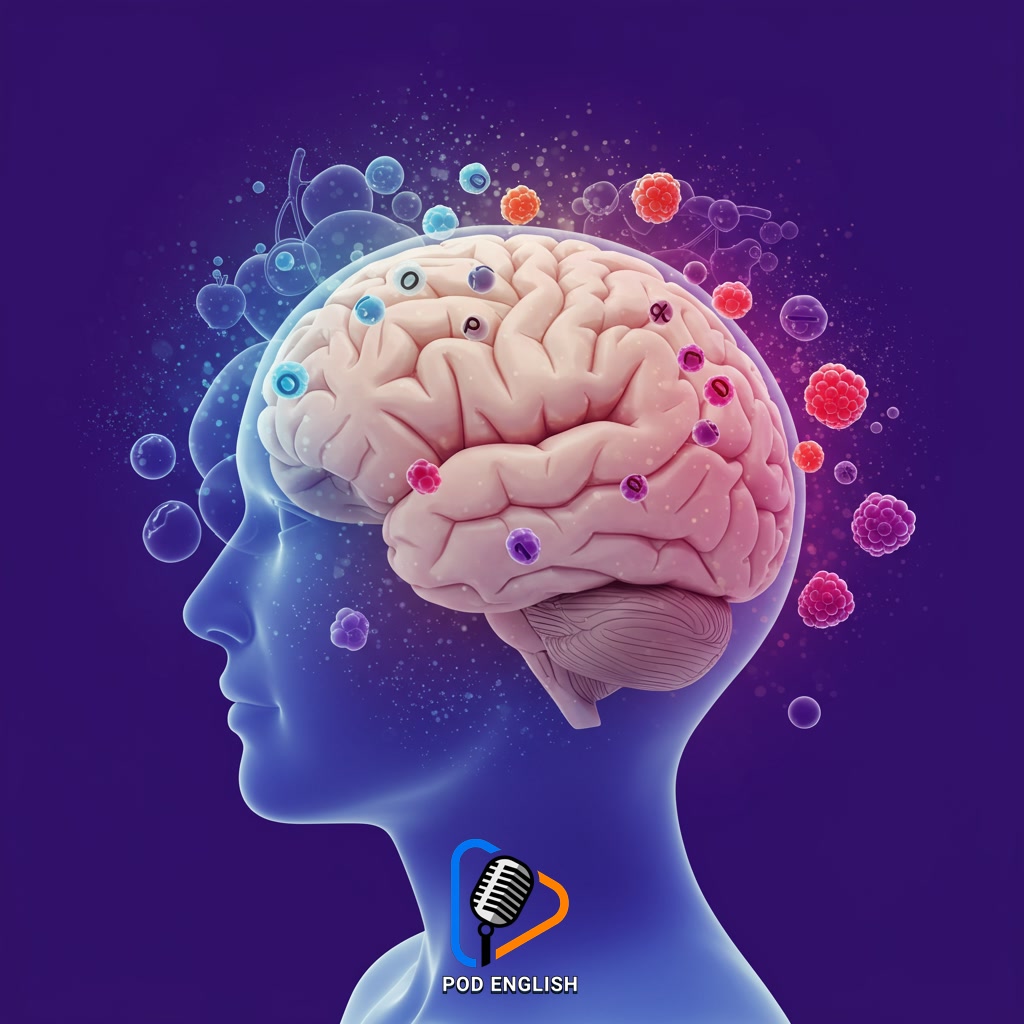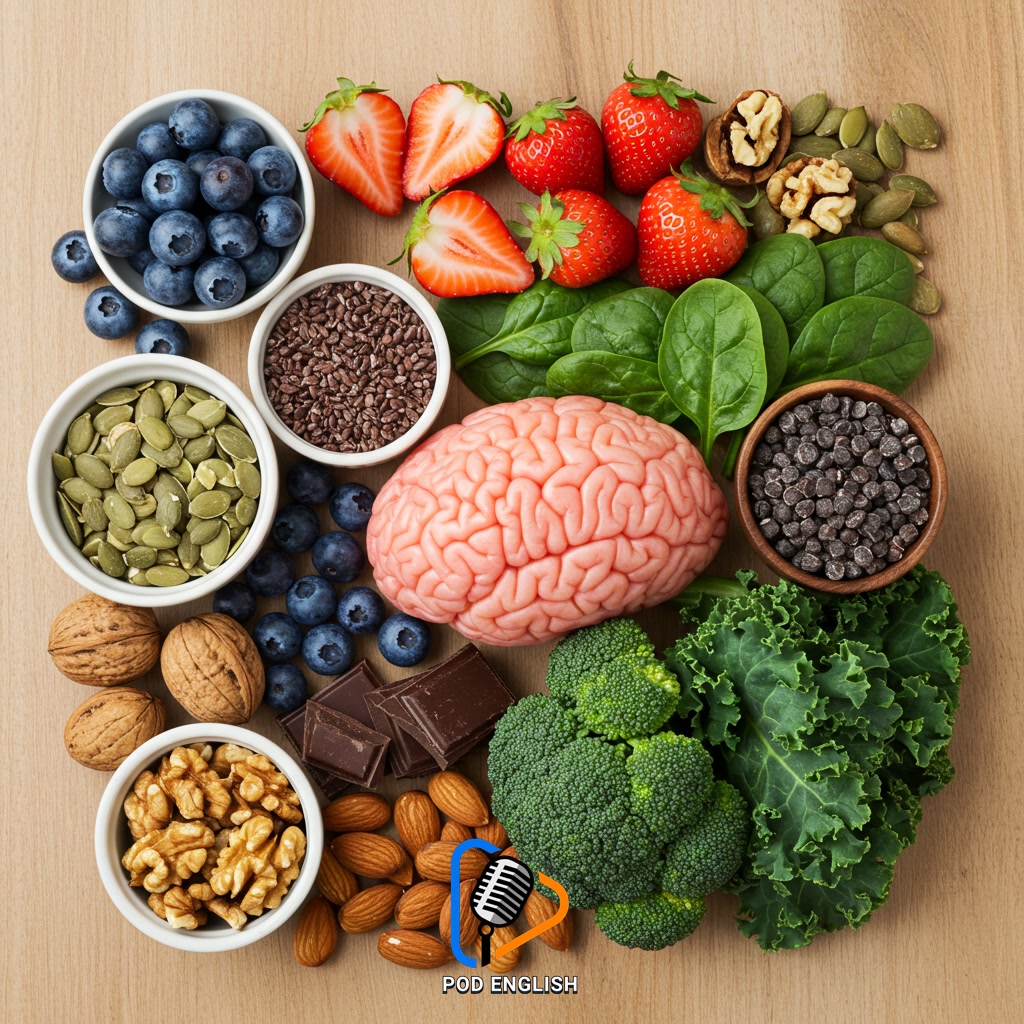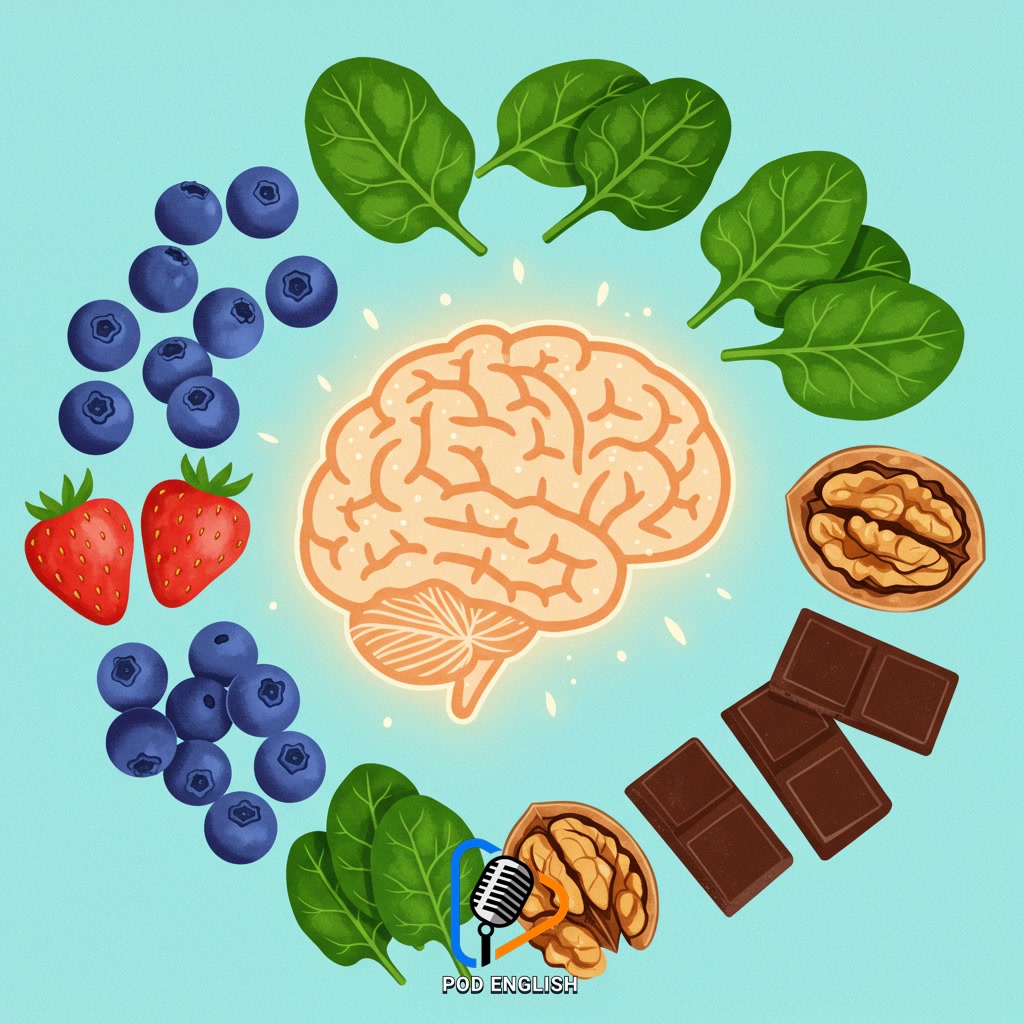Learn English
Powerful Antioxidants: Fight Brain Fatigue & Boost English Learning

This content examines how powerful antioxidants can help combat brain fatigue. By mitigating mental exhaustion, these compounds may enhance overall cognitive function and focus. This improved mental state is particularly beneficial for cognitively demanding activities such as the process of learning English. Supporting brain vitality through antioxidants can aid concentration and information retention necessary for effective learning.
Table of Contents
- Section 1: Understanding Brain Fatigue and Its Impact on Learning
- Section 2: Antioxidants: What They Are and Why Your Brain Needs Them
- Section 3: How Antioxidants Fight Brain Fatigue and Enhance Cognitive Function
- Section 4: Top Antioxidant-Rich Foods for Boosting Brain Health
- Section 5: Fueling Your Brain: Incorporating Antioxidants to Boost English Learning
Section 1: Understanding Brain Fatigue and Its Impact on Learning
Brain fatigue is a state of mental exhaustion that significantly impairs cognitive function, making it challenging to concentrate, focus, and process information effectively. When experiencing brain fatigue, individuals often report feeling mentally drained, experiencing ‘brain fog,’ and having difficulty maintaining attention, particularly during demanding tasks. For learners, especially those tackling a complex subject like English, this condition can be a major obstacle. It hinders the ability to absorb new grammar rules, retain vocabulary, understand spoken English, and engage in productive practice. The mental strain makes it harder to stay motivated and can lead to frustration, ultimately slowing down or impeding the learning process. Recognizing the signs and impact of brain fatigue is crucial for developing strategies to manage it and optimize learning efficiency.

Section 2: Antioxidants: What They Are and Why Your Brain Needs Them
Antioxidants are natural compounds found in various foods, particularly fruits and vegetables. Their primary role in the body is to protect cells from damage caused by unstable molecules called free radicals. These free radicals are produced during normal bodily processes, but environmental factors like pollution and stress can increase their numbers. The brain is especially vulnerable to this oxidative stress due to its high metabolic rate and lipid content. Antioxidants neutralize free radicals, acting like cellular defenders. By mitigating this damage, antioxidants help maintain healthy brain cell function, reduce inflammation, and support overall cognitive vitality. This protective action is crucial for keeping your brain sharp and less susceptible to the fatigue that hinders focus and the ability to absorb new information.

Section 3: How Antioxidants Fight Brain Fatigue and Enhance Cognitive Function
Building on the understanding that free radicals cause cellular damage, antioxidants play a crucial role in protecting our brain cells. These beneficial compounds work by neutralizing free radicals, preventing them from causing oxidative stress, which is like ‘rusting’ for cells. In the brain, oxidative stress can damage neurons, leading to inflammation and impaired function, manifesting as fatigue, poor concentration, and reduced memory. By mitigating this damage, antioxidants help maintain the health and efficiency of brain cells. This protection supports clearer thinking, improved focus, and better cognitive performance, which are essential for complex tasks like absorbing new information and mastering skills, such as learning English effectively.

Section 4: Top Antioxidant-Rich Foods for Boosting Brain Health
Building on the understanding that free radicals cause cellular damage, antioxidants play a crucial role in protecting our brain cells. These beneficial compounds work by neutralizing free radicals, preventing oxidative stress that can lead to brain fatigue. To actively support brain health and enhance cognitive function, particularly beneficial for demanding tasks like learning English, incorporating specific antioxidant-rich foods into your diet is key. Top contenders include vibrant berries like blueberries and strawberries, packed with flavonoids; dark chocolate, rich in polyphenols; nuts and seeds, providing Vitamin E; and leafy green vegetables such as spinach and kale, high in various vitamins and antioxidants. These foods provide the necessary nutrients to defend brain cells, potentially improving focus, memory, and overall mental energy required for effective learning.

Section 5: Fueling Your Brain: Incorporating Antioxidants to Boost English Learning
Building on the understanding that free radicals cause cellular damage, antioxidants play a crucial role in protecting our brain cells. These beneficial compounds work by neutralizing free radicals, preventing oxidative stress that can lead to brain fatigue and reduced cognitive function. Now, let’s focus on practical ways to fuel your brain with these protective compounds to enhance your English learning journey. Incorporating antioxidant-rich foods into your daily diet is key. Think colourful fruits like berries (blueberries, strawberries), dark leafy greens such as spinach and kale, nuts, seeds, and even dark chocolate in moderation. These foods provide the necessary nutrients to support brain health. By reducing cellular stress and inflammation, antioxidants help maintain cognitive function, improving focus and concentration. This enhanced mental clarity makes it easier to absorb new English vocabulary, understand grammar rules, and practice speaking and listening effectively. Fueling your brain with antioxidants is a simple, natural step to create a healthier, more efficient environment for learning English.














